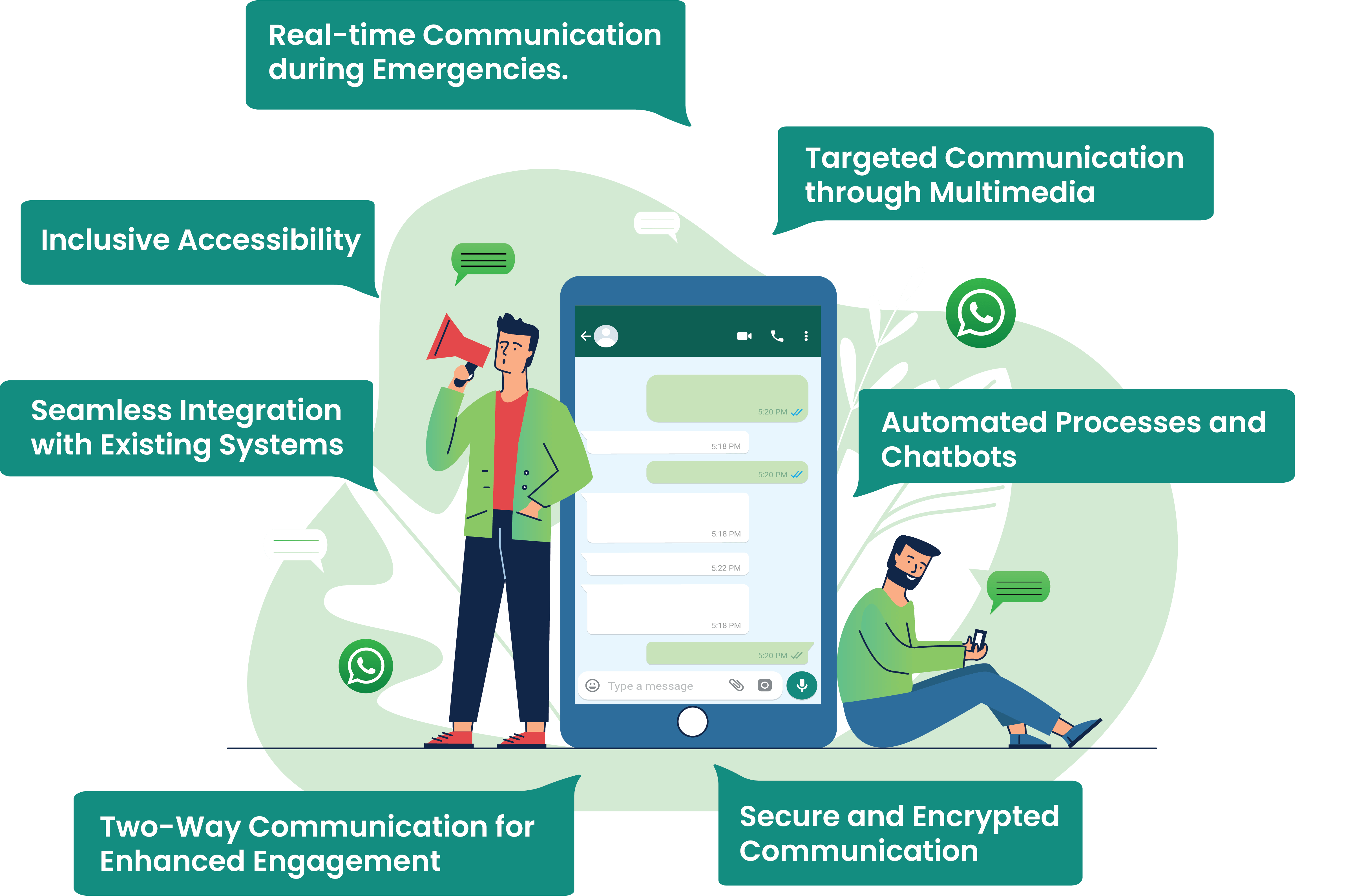
- Posted on
- chatpot
In the fast-evolving landscape of governance, the integration of technology plays a pivotal role in enhancing the efficiency and responsiveness of public services. WhatsApp, a ubiquitous messaging platform, has become a cornerstone in this digital transformation, offering not just a user-friendly interface for personal communication but also a robust Application Programming Interface (API) that governments can harness to streamline citizen services and emergency alerts.
As governments worldwide seek to modernize their communication strategies, the API offers a gateway to a myriad of possibilities. From providing secure and real-time updates during emergencies to automating routine citizen interactions, the WhatsApp API emerges as a powerful tool for fostering transparency, accessibility, and engagement.
1. Real-time Communication during Emergencies
In times of crisis, swift and reliable communication can make all the difference. The WhatsApp API facilitates real-time updates and emergency alerts, allowing governments to disseminate critical information efficiently. From natural disasters to public health emergencies, the ability to reach citizens instantly can significantly enhance emergency response efforts.
2. Seamless Integration with Existing Systems
The WhatsApp API seamlessly integrates with existing government systems, optimizing the flow of information. This integration not only enhances operational efficiency but also ensures that citizens receive accurate and up-to-date information without delays. It acts as a bridge, connecting various facets of governance and fostering a more interconnected administration.
3. Two-Way Communication for Enhanced Engagement
Unlike traditional communication channels, the WhatsApp API enables two-way communication. This interactive feature empowers citizens to engage with government services, ask questions, and provide feedback. This not only fosters a sense of community involvement but also allows governments to address citizens’ concerns promptly.
4. Secure and Encrypted Communication
Security is paramount, especially when dealing with sensitive information. WhatsApp’s end-to-end encryption ensures the secure exchange of messages, protecting citizens’ privacy and instilling confidence in the reliability of government communication. This becomes particularly crucial when sharing personal details during emergency situations.
5. Automated Processes and Chatbots
The WhatsApp API supports automation through chatbots, streamlining routine interactions. Governments can automate processes such as appointment scheduling, information requests, and service inquiries. This not only saves time and resources but also enhances the overall efficiency of citizen services.
6. Targeted Communication through Multimedia
The ability to share multimedia content, such as images, videos, and documents, enhances the effectiveness of communication. Governments can use the WhatsApp API to share visual aids, instructional videos, and other multimedia elements to ensure that citizens receive comprehensive information, particularly during emergencies.
7. Inclusive Accessibility
WhatsApp’s widespread usage ensures that information reaches a broad audience. It is a particularly inclusive platform, accessible even in areas with limited internet connectivity. This inclusivity is vital for ensuring that citizens from diverse backgrounds have access to crucial information and services.
8. Data-driven Decision Making
The WhatsApp API generates valuable data insights that governments can leverage for data-driven decision-making. Analyzing trends, citizen interactions, and feedback enables administrations to continuously refine and improve their services, creating a more responsive and citizen-centric governance model.
In conclusion as governments continue to navigate the complexities of modern governance, the integration of the WhatsApp API emerges as a technological leap towards creating more efficient, transparent, and citizen-centric administrations. From enhancing emergency response mechanisms to fostering inclusive communication channels, the benefits of leveraging WhatsApp API are shaping a future where governance is not just effective but also accessible to all. It is a testament to the transformative power of technology in revolutionizing the way governments connect with and serve their citizens.
In essence, the WhatsApp API is more than a technological tool; it is a catalyst for a more responsive, transparent, and citizen-centric governance model. The data-driven insights it provides open new avenues for continuous improvement, allowing governments to adapt and evolve based on citizen interactions and feedback.
As governments worldwide continue to grapple with the challenges of the 21st century, the benefits of WhatsApp API underscore its role as a cornerstone in the foundation of responsive governance. It’s not just about communication; it’s about creating a collaborative ecosystem where citizens and governments work hand in hand to build resilient communities. The journey towards a more connected, inclusive, and technologically advanced governance continues, and WhatsApp API is leading the way.
Want to know more about WhatsApp API Please visit our website https://chatpot.io/.

